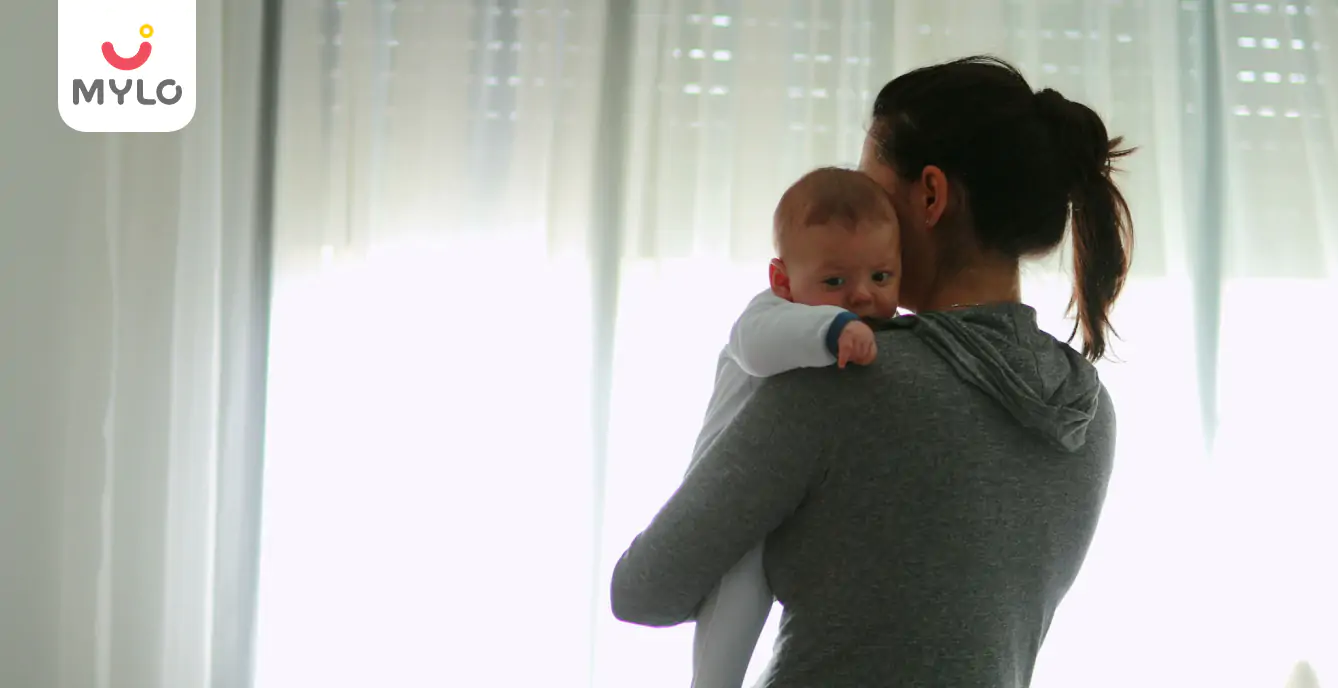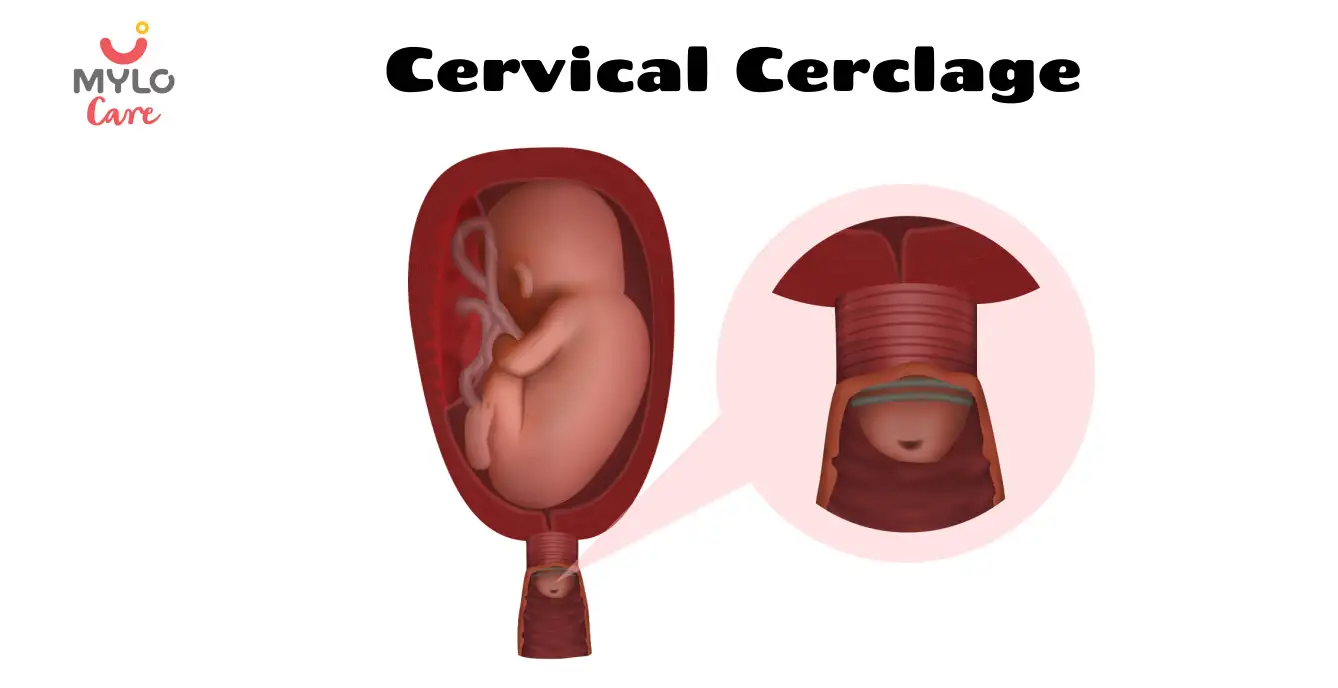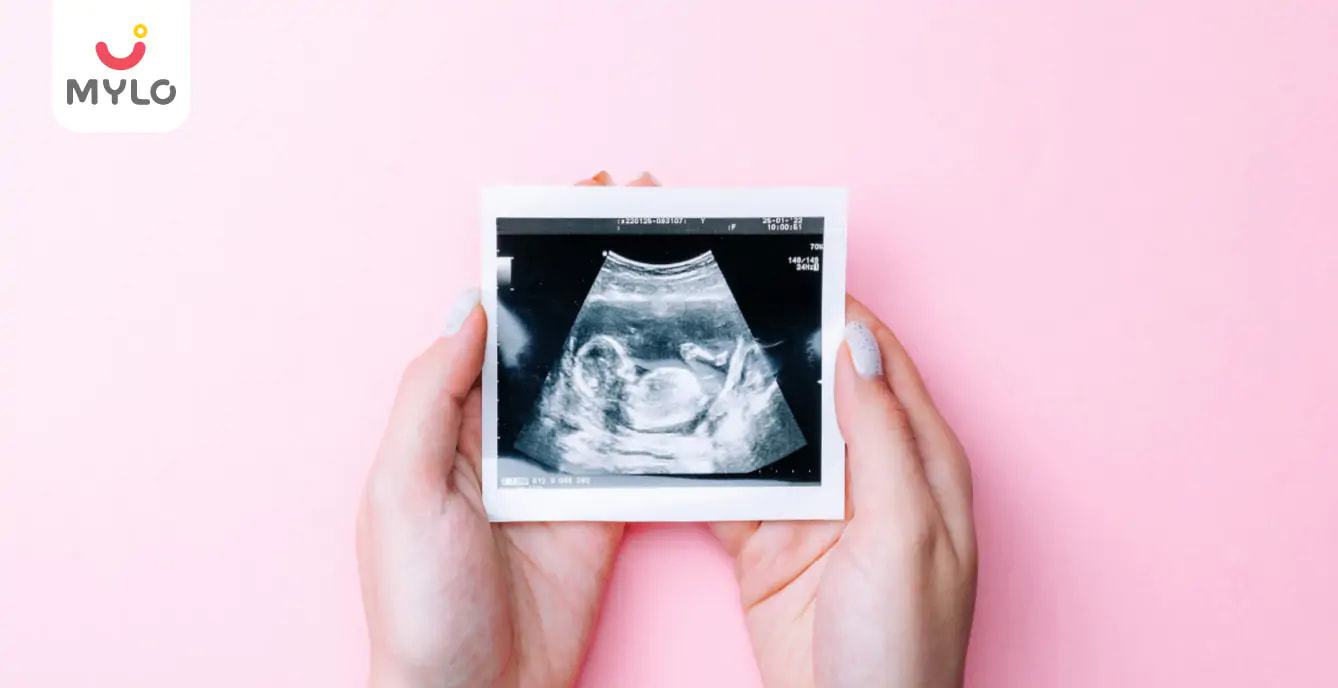Home

Fetal Heartbeat

Late Heartbeat in Pregnancy: What Could Be the Possible Reasons?
In this Article

Fetal Heartbeat
Late Heartbeat in Pregnancy: What Could Be the Possible Reasons?
Updated on 10 April 2024



Medically Reviewed by
Dr. Shruti Tanwar
C-section & gynae problems - MBBS| MS (OBS & Gynae)
View Profile

Pregnancy is a journey both parents undertake, with the mother anchoring their way to deliver a beautiful baby into their lives. The most exciting part of pregnancy for the parents is hearing the heartbeat of their baby for the first time. Hearing the baby's heartbeat is an indication that the pregnancy is going on as planned. The risk of miscarriage is less when the fetus's heartbeat has been detected.
But there may be cases of no heartbeat in the fetus or late fetal heartbeat. In this article, we will understand how late can heartbeat start in pregnancy and what are the possible reasons for a late heartbeat in pregnancy.
When Does Baby Heartbeat Start During Pregnancy?
If you're wondering baby heartbeat during pregnancy which week, then you would be happy to know that the baby's heartbeat typically starts during early pregnancy, around 6 weeks gestation. At this stage, the baby's heart is just beginning to form and develop.
The heartbeat can often be detected through an ultrasound, which uses sound waves to create an image of the baby in the womb. Hearing the baby's heartbeat for the first time can be a joyful and reassuring moment for expectant parents, as it indicates that the baby is growing and developing normally.
How Late Can Heartbeat Start in Pregnancy?
By the end of the first trimester, which is around 12 weeks gestation, a fetal heartbeat can typically be detected in most pregnancies. If a fetal heartbeat is not detected by 12 weeks, it could indicate a potential issue with the pregnancy, such as a miscarriage or an ectopic pregnancy. In such cases, further medical evaluation and tests would be necessary to determine the cause and appropriate steps to take.
However, in some cases, the pregnancy may be earlier than expected, or it may be too soon to detect the heartbeat using certain types of ultrasound equipment. In such situations, doctors may recommend a follow-up ultrasound a week or two later to reevaluate and monitor the development of the pregnancy.
You may also like: Can Fetal Heartbeat Disappear and Reappear?
Reasons for Late Heartbeat in Pregnancy
There are several reasons for no heartbeat at 6 weeks. The parents should know about the reasons so they can prepare well for a smooth pregnancy. Let's check the various causes of late heartbeat in pregnancy.
1. Gestational age
If the pregnancy is less than seven weeks, there would be no heartbeat at 7 weeks of a successful pregnancy. The heartbeat would only be heard through transvaginal ultrasound after 7 weeks. But when it comes to abdominal ultrasound, it can take a longer time to detect the heartbeat as it is more sensitive.
2. Different kinds of ultrasounds
If the mother is 8 weeks pregnant with no heartbeat but the baby is growing, then transvaginal ultrasound is the best form to detect the heartbeat. Transvaginal ultrasound is a preferable mode to detect the heartbeat as compared to abdominal ultrasound during early pregnancy. Detecting a heartbeat through a handheld doppler can take over 10 weeks.
3. Date inaccuracy
If there is no heartbeat after seven weeks of pregnancy through transvaginal ultrasound, there may be a chance the dates of pregnancy may be wrong. In early pregnancy days, slight days off or irregular ovulation patterns can bring about this difference. So instead of panicking because of the absence of a hidden heartbeat through ultrasound, the parents should consult the doctor and go for an ultrasound after some time.
4. Tilted Uterus
The way the uterus or the womb is positioned in the pelvis is responsible for the detection of the heartbeat of the fetus. Tilted uterus is a medical condition in nearly 20% of women. In this case, the uterus is at a distance from the abdominal wall.
There is no need to panic if you have a tilted uterus. As time progresses, the uterus will expand and move towards the abdominal wall. Moreover, by then your baby's heart will also have grown. This would help in detecting the heartbeat of the baby.
You may also like: Bicornuate Uterus: Causes, Symptoms and Treatment Options
5. Finding the baby
If you go for an early check, it may happen that the Doppler may not be able to detect your baby’s heartbeat because the fetus is too tiny yet. Although a Doppler can zoom in to find the baby’s heartbeat, you still need a lot of luck and patience. So, don’t worry, if you don’t hear the heartbeat on the first try, you can visit the doctor again as they advice.
6. Overweight
Expecting mothers who weigh on the heavier side of the scale may also experience trouble hearing their baby’s heartbeat. This is because the fat layer may obstruct the Doppler in identifying the fetal heartbeat. In such a case, an ultrasound can prove to be more efficient in detecting the heartbeat. If an ultrasound fails as well, then the doctor may recommend a transvaginal ultrasound.
What should you do next?
If 10 weeks of your pregnancy have passed and you haven’t yet heard your baby’s heartbeat, it’s natural to be concerned. If you’re worried that there is no heartbeat at 10 weeks, could the baby still be alive? It is recommended to consult your doctor and follow their instructions. You can also discuss questions like when heartbeat will start for the baby, with them.
In general, it is said that the baby’s heartbeat can be detected seven weeks after conception. If there’s no heartbeat at 7 weeks but you seem to be having a successful pregnancy, then it may be possible your due date was calculated wrong, the doctor used a Doppler instead of transvaginal ultrasound, or one of the reasons for late heartbeat in pregnancy that we discussed above.
If there is no heartbeat at 8 weeks or 9 weeks of pregnancy, but you haven’t experienced any signs of miscarriage then it’s best to consult your doctor. There have been cases of no heartbeat at 9 weeks due to one or the other of the causes but expecting mothers have still gone to have successful pregnancies. Avoid panicking in such a case and stay in contact with your doctor.
Conclusion
Absent or late heartbeat in pregnancy can put parents under a lot of stress and fear. While some variations in finding the baby’s heartbeat are normal but if it’s not detected by the expected stage, then do seek immediate medical attention to rule out factors such as early miscarriage, blighted ovum or any other nonviable pregnancy condition. But remember, do not jump to any conclusions or self-diagnose as every pregnancy is unique and only a doctor can provide you accurate assessment.
References
1. Valenti O, Di Prima FA, Renda E, Faraci M, Hyseni E, De Domenico R, Monte S, Giorgio E. (2011). Fetal cardiac function during the first trimester of pregnancy. NCBI
2. Jha Akhilesh Kumar, Rimal Bikranta, Khatun Tarannum. (2017). Evaluation of Normal Heart Rate in Early Pregnancy Corresponding to Gestational Age between Six to Eight Weeks. NMC
Tags
Late Heartbeat in Pregnancy in Bengali, Late Heartbeat in Pregnancy in Telugu, Late Heartbeat in Pregnancy in Tamil





Medically Reviewed by
Dr. Shruti Tanwar
C-section & gynae problems - MBBS| MS (OBS & Gynae)
View Profile


Written by
Roohi Kalra
Get baby's diet chart, and growth tips

Related Articles
Related Questions
I am 9th week pragnecy but not show baby heart beat

RECENTLY PUBLISHED ARTICLES
our most recent articles

Postnatal Care
What Is Postpartum Bleeding or Lochia?

IUI Babies vs Normal Babies: Are They Any Different?

Food Cravings
Is it Safe to Eat Pani Puri During Pregnancy?

Scans & Tests
High WBC in Pregnancy (Leukocytes): Symptoms, Causes & Treatment

Diet & Nutrition
Top 10 food items and beverages that one must completely avoid during pregnancy.

Negative Commerce Content
Things Not to Do After Cervical Cerclage for a Healthy Pregnancy
- When to Stop Bending During Pregnancy?
- Pain in Anus During Pregnancy: Your Guide to Causes and Cures
- White Spots on Nipple: Normal or Cause for Concern?
- Blessed with Baby Boy: 50+ Ways to Announce Your Baby's Birth
- Brown Discharge During Early Pregnancy: Understanding the Causes & Next Steps
- When Can I Start Bending After C-Section: Expert Insights on C-Section Recovery
- 18 Foods That Can Cause Miscarriage: A Guide to Avoiding Harmful Foods
- 9 Week Ultrasound: What to Expect & What are the Red Signals?
- Drumstick During Pregnancy: The Ultimate Guide to Benefits & Side Effects
- How to Avoid Pregnancy After Missing Period Naturally?
- 1st Birthday Wishes for Nephew and Niece That Tug at the Heart
- The Ultimate Collection of Baby Boy Names in Telugu
- Navel Displacement: The Ultimate Guide to Causes, Symptoms & Treatment
- Top 10 Thriller Movies on Hotstar for Edge-of-Your-Seat Excitement


AWARDS AND RECOGNITION

Mylo wins Forbes D2C Disruptor award

Mylo wins The Economic Times Promising Brands 2022
AS SEEN IN

- Mylo Care: Effective and science-backed personal care and wellness solutions for a joyful you.
- Mylo Baby: Science-backed, gentle and effective personal care & hygiene range for your little one.
- Mylo Community: Trusted and empathetic community of 10mn+ parents and experts.
Product Categories
baby carrier | baby soap | baby wipes | stretch marks cream | baby cream | baby shampoo | baby massage oil | baby hair oil | stretch marks oil | baby body wash | baby powder | baby lotion | diaper rash cream | newborn diapers | teether | baby kajal | baby diapers | cloth diapers | laundry detergent 6472 | lactomama lactation granules |








